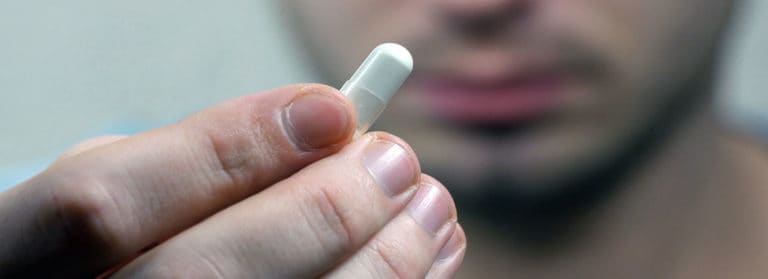Substance abuse disorders lead to a wide range of physical and mental health issues. However, the average person may not consider the relationship between drug use and sexually transmitted diseases like HIV/AIDS. The problematic use of alcohol, cocaine, methamphetamine or opioids is closely linked to the likelihood of developing HIV/AIDS. People who share needles, syringes or other tools to inject drugs are at particular risk of direct HIV transmission.
However, consuming alcohol and drugs is also indirectly linked to an increased risk of contracting HIV. These substances can alter judgment, and this can lead to an increase in risky sexual behaviors. Drug users are more likely to have sex with multiple partners or forgo the use of a condom. This makes them more likely to develop an STD.
According to the Centers for Disease Control and Prevention, around one in ten new HIV diagnoses in the United States are due to intravenous drug use or male-to-male sexual activity and injection drug use. In people who have HIV, substance use can make the disease progress faster. It can also prevent the individual from taking their antiretroviral medications as prescribed.
According to UNAIDS, HIV infections among people who inject drugs seemed to be rising even as global HIV infection dropped by 22 percent between 2011 and 2017. Many people who use illegal drugs are afraid to get tested because of the stigma surrounding drug use. Some also lack access to healthcare options and resources for the prevention and treatment of HIV. Reducing the risk of HIV transmission requires early intervention and the combination of HIV and substance abuse treatment programs.
Commonly Used Substances Associated with Increased HIV Risk
The most commonly used drugs can increase the risk of contracting HIV. Let’s look at why this is the case.
- Binge drinking, and excessive alcohol consumption generally, can be a significant risk factor. It is notoriously linked to risky sexual behavior. Also, in people living with HIV, it can negatively impact treatment outcomes.
- Opioid use is associated with both risky sex and needle sharing. Both prescription opioid misuse and illegal drug use can make users more vulnerable to infection.
- Crack cocaine. Crack cocaine is an addictive stimulant. It can lead to a cycle in which people spend all their money on crack and then turn to other sources to get money or drugs. They may trade sex to get what they want, and this puts them at an increased risk of developing HIV.
- Meth is also linked to risky sexual practices. Since it can be injected, it also puts people who share needles and other drug paraphernalia at a higher risk of getting HIV.
- The use of amyl nitrite or “poppers” is associated with high-risk sexual behavior and STDs especially among bisexual and gay men.
What You Should Do If You’re a Drug User or Addict
Substance abuse puts you at risk for a number of negative outcomes. In addition to the challenges you’re likely to face in your personal and professional life, you also have to consider the threat of HIV/AIDS. People who inject drugs are especially vulnerable. You need to ensure you get tested for HIV/AIDS and that you get into a treatment program that addresses multiple psychological and physiological problems.
If you are struggling with addiction and you already have HIV, you need to ensure you don’t put others at risk. You also need to understand the role that substance abuse plays in the progression of your illness. If you continue to take your medication as recommended and seek professional help for your addiction, you can get sober. The most effective programs combine several types of treatment including talk therapy, nutritional counseling, and HIV care.
Get Professional Help with Substance Abuse from Asheville Recovery Center
If you have a substance use disorder, you need to know that you can overcome addiction. Drug and alcohol misuse can have a devastating impact on your life and HIV/AIDS can compound matters further. However, all is not lost. Recovery from addiction is possible. If you want to take control of your drug use and your risky sexual behavior, you need to get to the root of your addiction. At Asheville Recovery Center in North Carolina, we offer holistic treatment programs for people who want to overcome their substance use problems. We devise customized programs for each patient since each individual’s situation is unique. Call us today to schedule a consultation and learn more about our treatment options.






